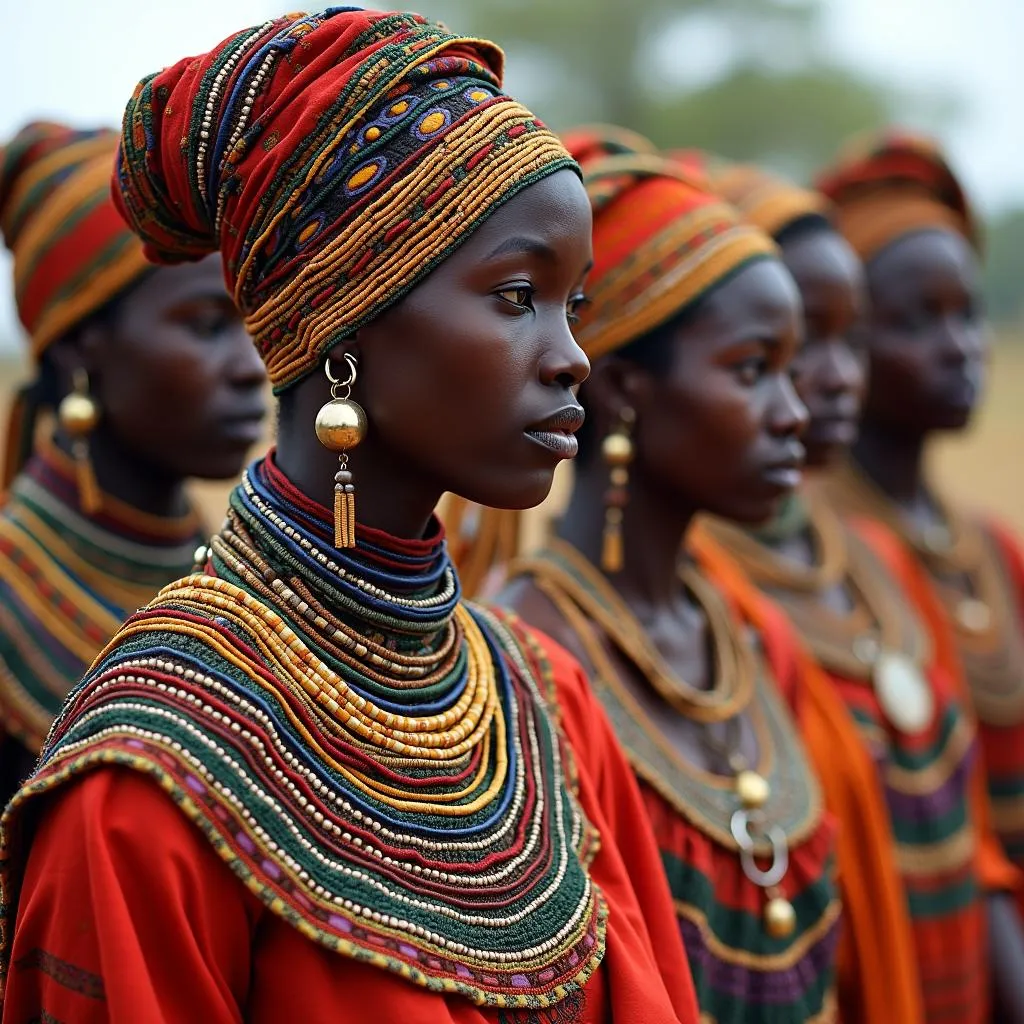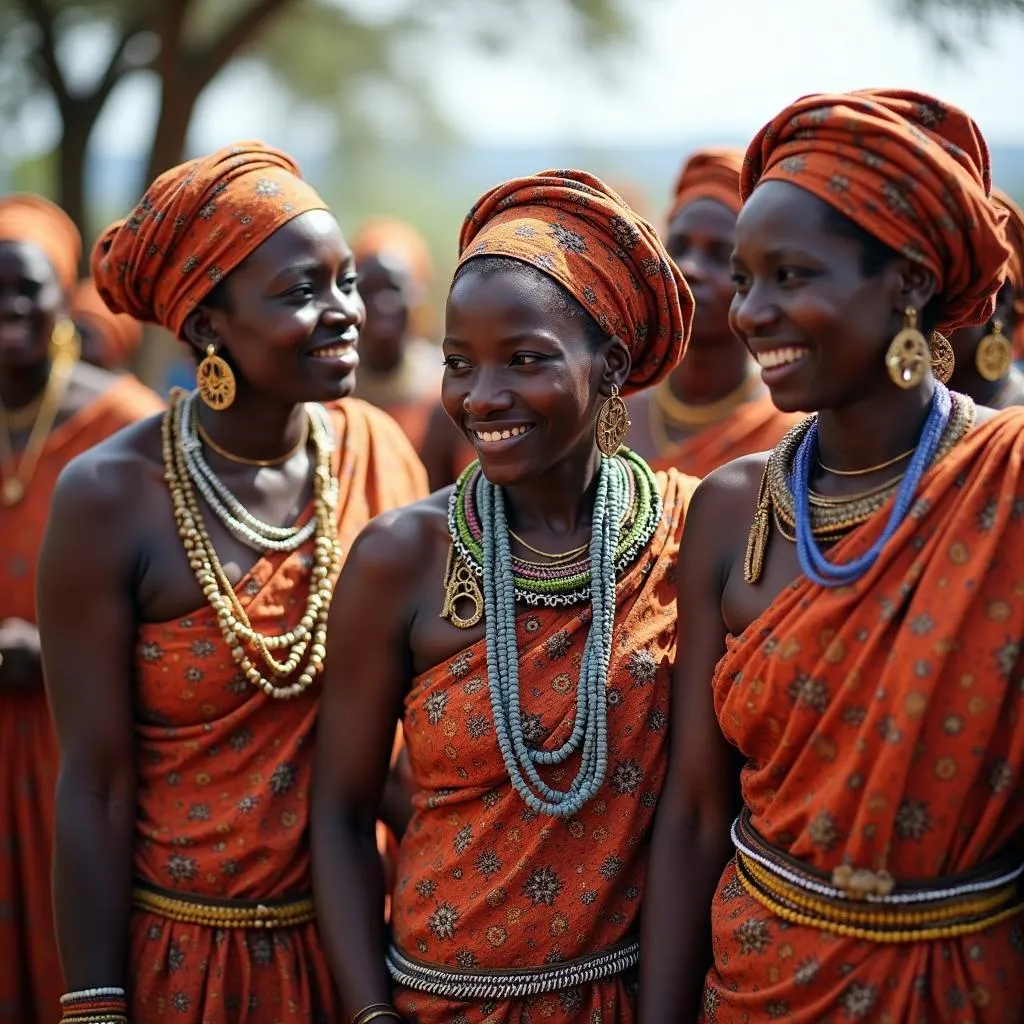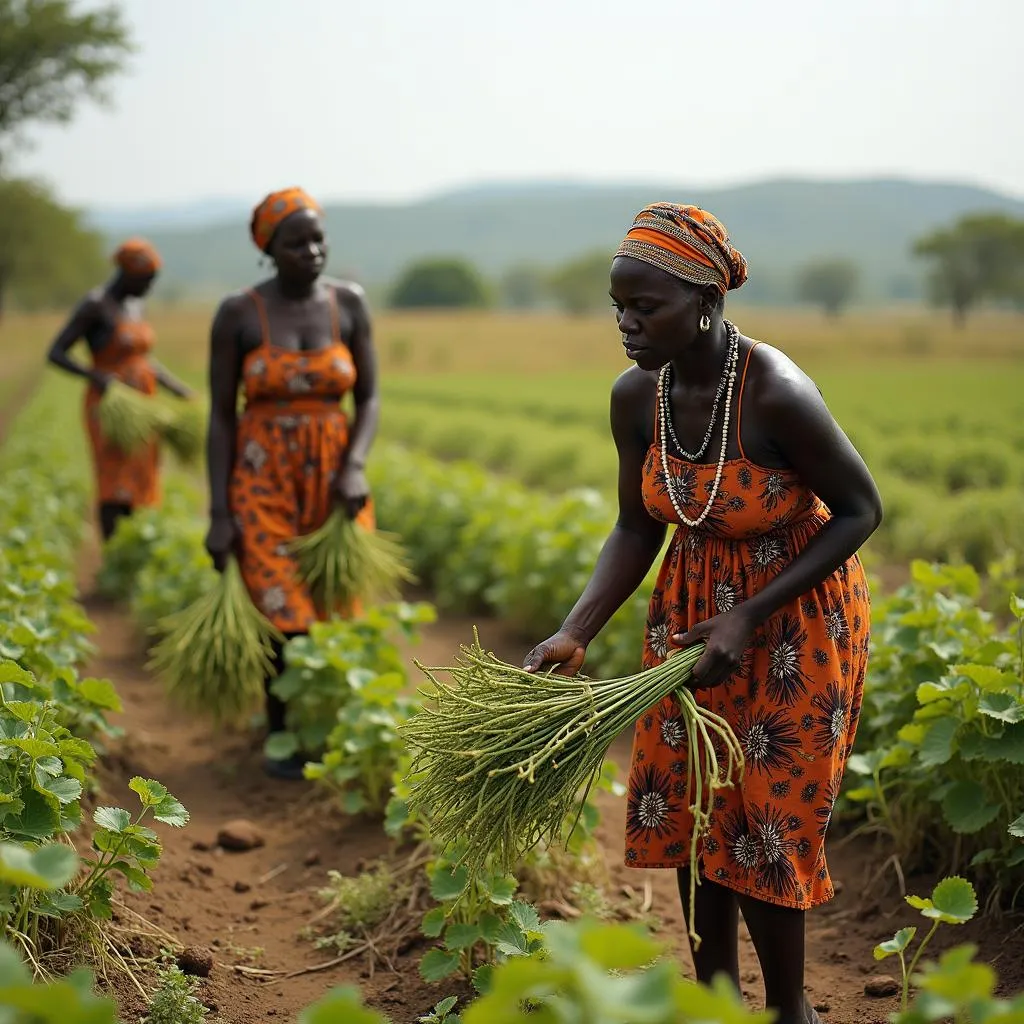Exploring the Diverse Lives of African Tribal Women
African Tribal Women are a fascinating and diverse group, representing a rich tapestry of cultures, traditions, and ways of life. This article explores the multifaceted roles they play within their communities, highlighting their resilience, strength, and vital contributions to their societies.
The Foundations of Tribal Life
African tribes are characterized by their strong social structures, with women holding positions of power and influence within their communities. They are often the custodians of tradition, knowledge, and cultural heritage, passing down these values from generation to generation.
“Tribal women are the heart and soul of their communities, representing the strength, resilience, and wisdom that have sustained their people for centuries,” says Dr. Amina Rashid, a renowned anthropologist specializing in African cultural studies.
The roles of tribal women vary widely depending on the specific tribe and region, but their contributions are consistently profound. From farming and food production to crafting, healing, and nurturing families, they are integral to the daily lives of their communities.
The Strength and Resilience of African Tribal Women
Tribal women face numerous challenges, including poverty, limited access to education, and the impact of globalization on their traditional ways of life. Despite these obstacles, they have shown remarkable strength and resilience, adapting and thriving in diverse environments.
“Their resilience is a testament to the strength of their spirit, their unwavering commitment to their communities, and their unwavering belief in their traditions,” states Dr. Rashid.
Roles and Responsibilities
- Food Security: Many tribal women are responsible for farming, gardening, and food preservation, ensuring the sustenance of their families and communities.
- Childcare and Education: They are the primary caregivers for their children, nurturing them and teaching them valuable life skills and traditions.
- Healthcare: Traditional medicine practices are often passed down through generations of women, making them integral to healthcare in many tribal communities.
- Community Leadership: Women often occupy positions of influence in tribal councils, mediating conflicts and contributing to decision-making processes.
- Artistic Expression: From weaving and pottery to storytelling and music, women are often the keepers and creators of their tribe’s artistic heritage.
Challenges and Opportunities
While tribal women play essential roles in their communities, they also face a number of challenges. These include:
- Gender Inequality: In some cases, women are still subjected to traditional gender roles that limit their opportunities for education, economic empowerment, and participation in decision-making.
- Climate Change: As the impacts of climate change become more severe, tribal women face increased challenges in securing food and water resources, impacting their livelihoods and the well-being of their communities.
- Modernization and Globalization: The encroachment of modern lifestyles and globalization can erode traditional values and practices, creating tensions between preserving cultural heritage and adapting to change.
Preserving Tradition While Embracing Change
The future of African tribal women is intertwined with the future of their cultures and traditions. While facing numerous challenges, they are also active participants in shaping their communities and securing their futures.
“Tribal women are not simply victims of change, but active agents in shaping their own destinies and preserving their cultural heritage,” notes Dr. Rashid.
Solutions and Initiatives
- Empowering Women through Education: Providing access to education and training programs empowers women to secure economic independence, participate in decision-making, and advocate for their rights.
- Promoting Sustainable Practices: Supporting initiatives that promote sustainable farming techniques, water conservation, and renewable energy sources helps to mitigate the impact of climate change and preserve natural resources.
- Preserving Cultural Heritage: Initiatives that document, preserve, and revitalize traditional arts, crafts, and languages help to ensure that these valuable cultural assets are passed down to future generations.
Conclusion
African tribal women are a vital force in their communities, embodying resilience, strength, and cultural richness. Their contributions are crucial to their societies’ well-being and their stories provide a powerful lens through which to understand the complexities of African culture. As we move forward, it is essential to support and empower these remarkable women, recognizing their essential roles and their enduring contributions to a thriving future for their communities.
FAQ
1. What are some of the most common challenges faced by African tribal women?
African tribal women face a number of challenges, including poverty, limited access to education, gender inequality, and the impact of climate change.
2. How do tribal women contribute to their communities?
Tribal women play essential roles in their communities, including farming, food production, childcare, healthcare, community leadership, and artistic expression.
3. What are some initiatives being undertaken to empower African tribal women?
Initiatives aimed at empowering African tribal women include providing access to education, promoting sustainable practices, and preserving cultural heritage.
4. What are some of the key cultural values that define African tribal societies?
Key cultural values that define African tribal societies include community, respect for elders, family bonds, and the importance of tradition.
5. What is the significance of the role of African tribal women in maintaining cultural heritage?
African tribal women play a crucial role in preserving cultural heritage, passing down traditional knowledge, skills, and practices to future generations.
6. What are some ways in which we can support African tribal women?
Supporting African tribal women involves advocating for their rights, promoting their economic empowerment, and contributing to initiatives that address the challenges they face.
7. How can we learn more about the lives of African tribal women?
You can learn more about the lives of African tribal women by reading books and articles by anthropologists and cultural scholars, watching documentaries, and engaging with organizations working to empower women in Africa.
 A group of African tribal women wearing vibrant traditional clothing
A group of African tribal women wearing vibrant traditional clothing
 A group of African tribal women gathered in a community setting
A group of African tribal women gathered in a community setting
 African tribal women tending to crops in a field
African tribal women tending to crops in a field
If you are interested in learning more about African tribal women and supporting their empowerment, please feel free to reach out to us. We are dedicated to providing accurate information, connecting with relevant resources, and fostering a greater understanding and appreciation of their diverse and enriching cultures.
